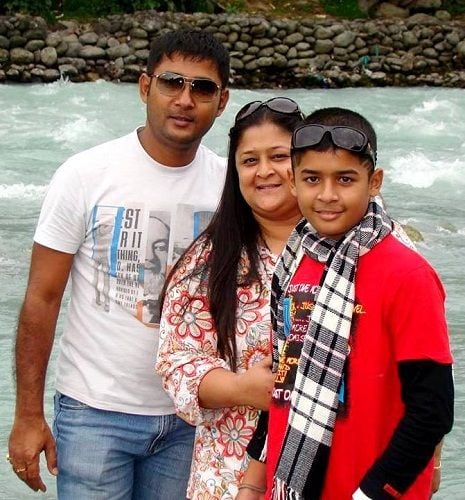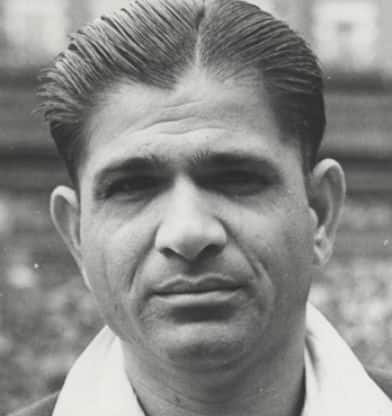
Shyam Sundar Mitra: My role-model has gone but the
memory remains…
When cricket connoisseurs including Sunil Gavaskar talk of
Shyam Sundar Mitra invariably they remember him as the most deserving
middle-order batsman who never represented India. His career ran along the lines of Veda Vyas’
heroic warrior Karna: forever in neglect, but cannot be disregarded for his
outstanding merit.
SS, to his friends and foes, did not believe in joining
groups; had no desire to have ‘backers’; hated sycophancy. He was his own man:
aware of his capabilities and in complete control of himself. Destiny decided
that he be neglected and rejected by the mediocrity around him. But again like
Karna, SS stood tall and independent on his own merit.
In a sea of corrupt influences, invariably enough, he paid
for his uprightness. While Shivalkar and Goel lost out on a Test place because
of the looming presence of Bishan Bedi, SS was tripped for a strange reason. A
very domineering national selector hailing from Bengal wanted SS to play for
his club in Calcutta. But SS preferred to be loyal to Mohun Bagan AC which he
adorned with dignity and pride from 1964 to 1974. The price for his integrity
was to remain in oblivion forever. Neither Mohun Bagan AC nor CAB ever came
forward to assist him in any way.
SS graced Bengal and East Zone teams for more than a decade.
An aggregate of 3058 at 50.13 from 59 first-class matches is a phenomenal feat
on uncovered and spinner-friendly Indian pitches of the 60s and 70s. His 7
centuries included two against the might of Bombay of those days. He had two
more against Indian Railways in one match as well.
As if this was not enough, he scored a masterly hundred
against the great Vinoo Mankad on a matting wicket at Udaipur. Those who
thought he was weak against genuine pace got their answer when he notched 98
against the fiery and fearsome West Indies fast bowler Roy Gilchrist who had
sent shivers down the spine of our Test batters.
Exemplary concentration, unruffled temperament, cultured
stroke-play and an impregnable defence were the hall marks of his skills. His
batsmanship was based on classical lines. He preferred the ‘back and across’
movement at the crease but whenever the opportunity arose he would go half-forward
and drive on the up. Like the persona, his bat was always straight. That most
difficult of cricket strokes – the on-drive off the back-foot – was his
copyright trademark and he accomplished it with rare grace. His batsmanship was
a visual delight. Handsome of bearing, the chiselled face topped a lithe
physique of 6 feet.
SS had a terrific sense of humour: the dry, cultured wit of
PG Wodehouse, whose books he would read on tours. Someone once mocked, “Shyamu,
tui boddo kaalo. (your complexion
is very dark).” Instantly he smiled, “So would you be, if you were to bat for as
long as I do.”
His straight face sarcasm we relished. Once he remarked to a batter,
who was out off the first ball he faced, “If you keep batting in this way, your
bat will last a lifetime!” His dry wit extended to the ground as well. “Two on
his shoulders, one on his waist and one on his lap!” was a typical skipper SS’s
way of setting the field for two slips, one short leg and one silly-point!
Bapu Nadkarni’s accuracy made batters impatient and invariably
they perished trying to hit him across the line. So SS’s prescription was, “Bapu
does not like to be hit; so don’t try to hit him!”
My first real look at him was at Mohun Bagan AC, a club I
joined at 17 after my ISC exam. He was our captain. It was a delight to see him
use the bat as a violin. Melody flowed as he middled the ball. My
impressionable mind realized that this man was different, far ahead of any of
his contemporaries.
I became the Ekalavya
to his Dronacharya. Tried to pick up the finer points by observing, evaluating
and practising. Subconsciously the style became ingrained. One
championship-winning partnership with him against Guha and Doshi taught me more
about batting than anything that I had learned earlier.
I reckon SS never took a fancy to me when we were together in
Mohun Bagan for about 3 years. Not that he criticized me, but he would never
praise. Nothing I did seemed to satisfy him. He seemed to have no time for
others. Probably his approach was the correct approach. Why would he come
forward with suggestions, when not asked?
Years later, after I got a match-winning 99 against Kapil Dev
and Rajinder Goel at Eden Gardens, SS – at the time a Bengal selector – wryly
smiled, “Ah! Captain, I see you have got the right role-model. I quite like the
style.” That was enough for me. High praise from a man who was unaware that he
was my batting idol ever since I first saw him bat.
Yes, Shyamuda, you were my role-model. God has taken you to a
better place. RIP.



